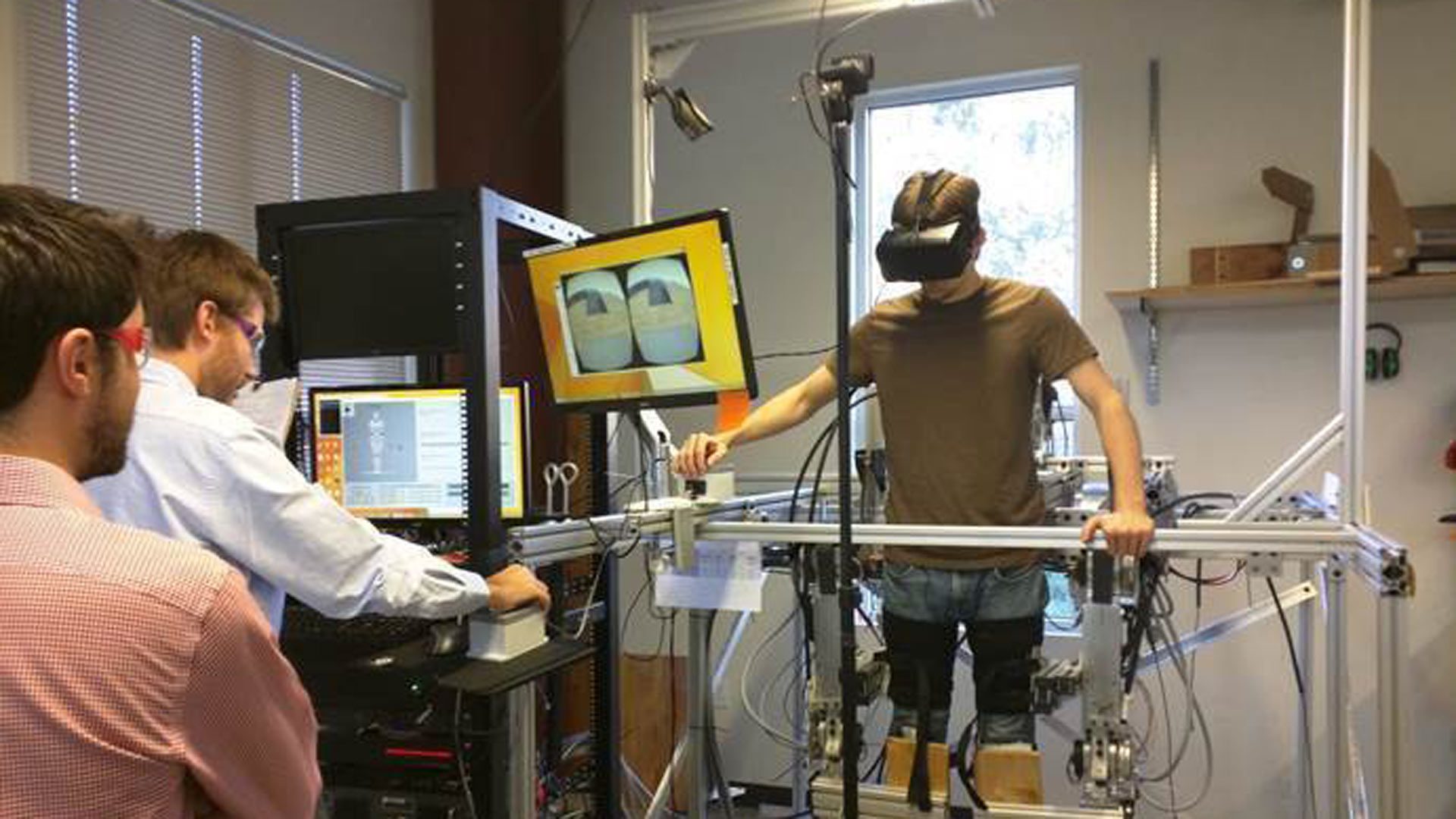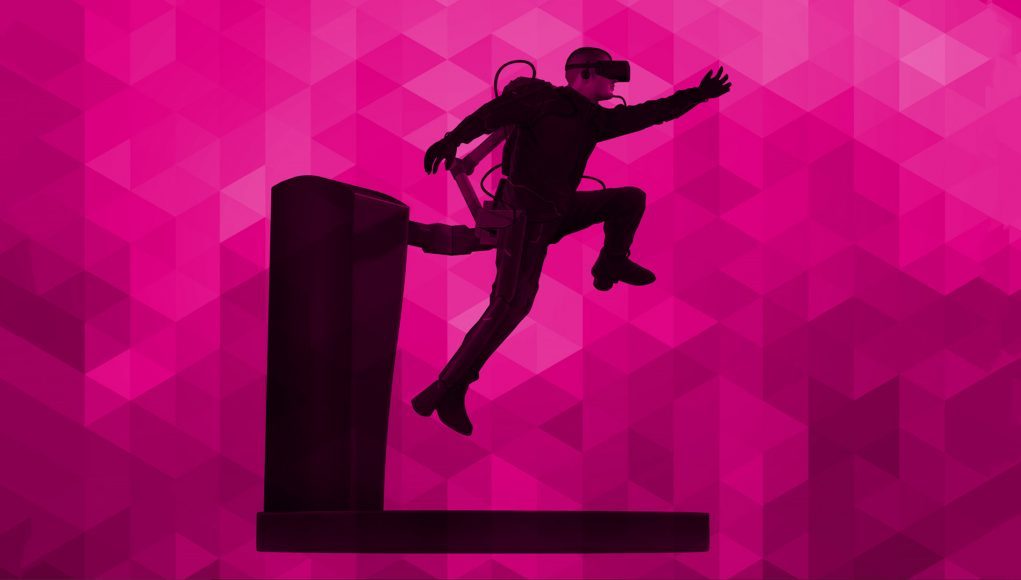The company behind the force feedback haptic gloves HaptX and research teams from Virginia Tech and University of Florida have secured a $1.5 million grant from the National Science Foundation (NSF), something the group says will allow them to build full-body haptic and force feedback tech for VR and robotics.
Called ‘ForceBot’, the project is slated to let users feel “large-scale passive and active constraints on their movements that closely mimic real-world forces,” the group says, allowing users to feel the shape, weight, and texture of virtual objects, move naturally in VR, and use telepresence robots for object manipulation.

ForceBot is being funded by the the NSF’s National Robotics Initiative, which is dedicated to accelerating the development and use of robots in the US that work beside or cooperatively with people.
“ForceBot will advance knowledge at the convergence of virtual reality, robotic control, sensory feedback, ergonomics, and human factor fields,” said Dr. Alexander Leonessa, Principal Investigator, Virginia Tech. “We’re excited to create a system that increases immersion for VR users in applications requiring intensive body motions like sports and industrial skills training, gaming, emergency response, and many others.”
HaptX is best known for its industrial-grade Haptx Gloves Developer Kit, which combines an exoskeletal glove for force feedback and integrated micro-pneumatics for detailed haptics delivered to the fingertips.
Not much is known about everything going into ForceBot, however the project is slated to incorporate HaptX Gloves in addition an articulated motion platform for walking in virtual environments.







